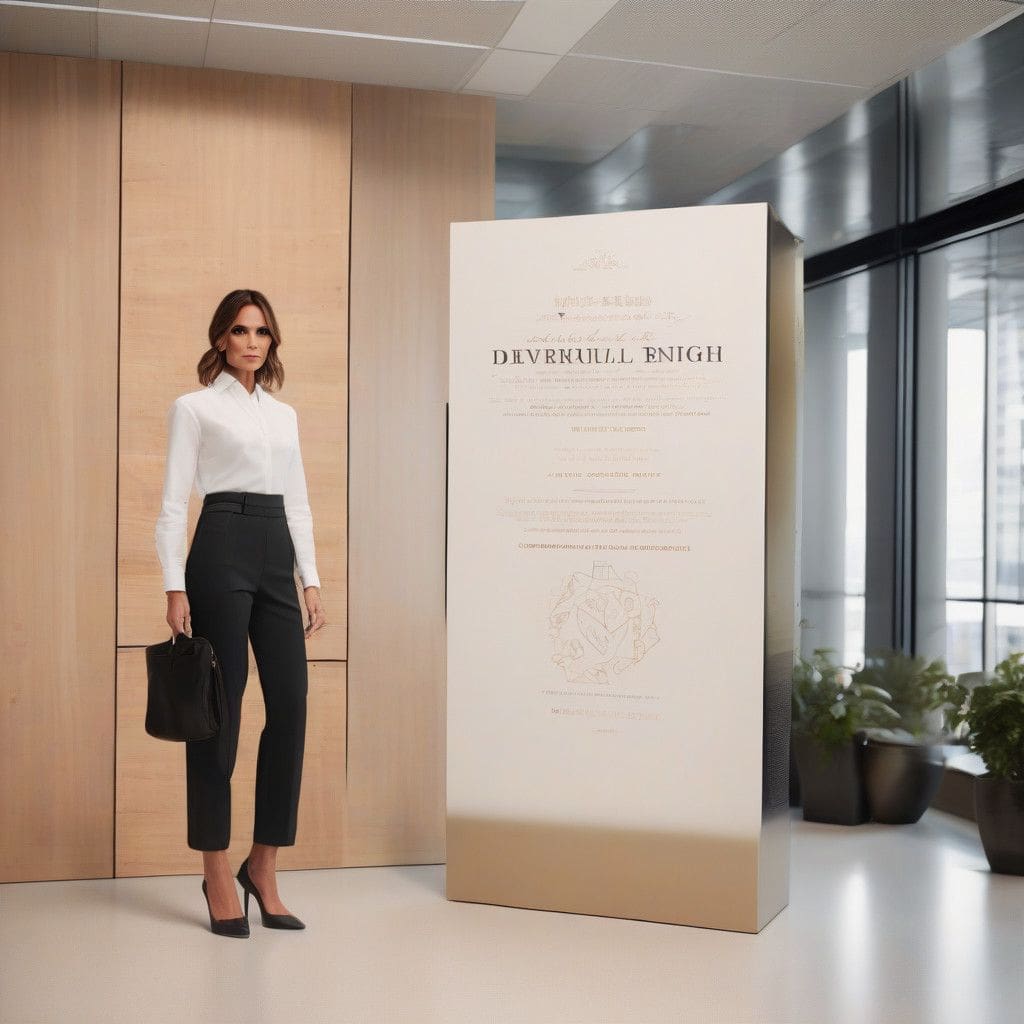In a significant shift within the luxury fashion world, Marie Leblanc, the CEO of Victoria Beckham, has announced her departure from the brand. This decision comes after five years in leadership, marking the end of a transformative era for the label. Leblanc is set to return to France to focus on family, as announced by the company on October 7, 2024. Until a permanent successor is appointed, Ralph Toledano, the brand chairman, will take over as interim CEO.
Marie Leblanc joined Victoria Beckham in 2018, initially taking on the role of product director. Her ascension to CEO occurred just a year later, during which time she was instrumental in reshaping the brand’s identity and diversifying its product offerings. One of her notable achievements was expanding into lower-priced categories, specifically small leather goods and fragrances, an effort that allowed the brand to appeal to a broader audience.
The impact of Leblanc’s strategies is evident in the company’s financial performance. Sales surged by 52% last year, reaching £89 million (approximately $116 million). Despite this impressive growth, it is important to note that the company remains in the red, evident from its reported loss of £200,000. This paradox illustrates the delicate balance luxury brands must maintain: achieving sales while managing operational costs and investments for future growth.
In a press release, Ralph Toledano emphasized that Leblanc’s departure positions the brand “primed for accelerated growth.” This statement signals a confidence in the foundation laid under her leadership. While the financials point to challenges ahead, the trajectory suggests potential as the luxury market continues to evolve.
The fashion and beauty industry is witnessing rapid changes, influenced by shifting consumer preferences and increased competition. Online growth has been a game changer, particularly during the global pandemic when brands that adapted quickly to e-commerce saw substantial gains. Victoria Beckham has not shied away from this trend, investing in digital channels and showcasing its products through innovative online platforms.
For instance, leveraging the power of social media marketing and influencer partnerships has enabled brands to reach new audiences. Victoria Beckham’s own transition into online retail aligns with broader industry movements, where the modern consumer values accessibility and engagement. Utilizing social media platforms for launching new products and connecting with consumers directly is becoming essential.
Moreover, the luxury sector is increasingly embracing sustainability, another area where Victoria Beckham has made strides. Consumers, especially younger demographics, are now prioritizing brands that demonstrate social responsibility. By aligning product offerings with sustainable practices, brands not only attract these conscious consumers but also create a narrative that strengthens brand loyalty.
As the company prepares for a new CEO, its next executive faces the challenge of continuing Leblanc’s momentum while addressing the persistent issue of profitability. This incoming leader will need to navigate a landscape marked by fierce competition and evolving market dynamics, all while maintaining the brand’s distinct luxury appeal.
The transition also highlights an ongoing trend where leadership changes often prompt a reevaluation of brand strategy and direction. For many luxury brands, such shifts can lead to reinvigorating their market presence through new creative visions. It will be interesting to see how the new CEO will approach product innovation and marketing, particularly in expanding the brand’s footprint in the context of the global luxury market.
In conclusion, Marie Leblanc’s departure from Victoria Beckham marks a pivotal moment for the brand, presenting both challenges and opportunities. As the fashion landscape evolves, the incoming leadership will undoubtedly play a crucial role in navigating the complexities of the luxury sector, ensuring sustainable growth, and appealing to an ever-discerning consumer base.
This transition serves not only as a reflection of the brand’s journey but also as a reminder of the dynamism within the luxury fashion industry. As targets of profitability remain elusive for many, the strategies implemented by next-generation leaders will define the future trajectory of brands like Victoria Beckham.












